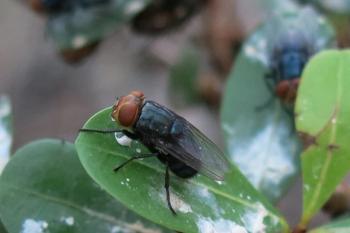
Commission urges EVA caution amid outbreak
Austin, Texas - The Texas Animal Health Commission advised equine owners and DVMs to use best practices for the prevention of Equine Viral Arteritis (EVA) following an outbreak in nearby states.
AUSTIN, TEXAS — The Texas Animal Health Commission advised equine owners and DVMs to use best practices for the prevention of Equine Viral Arteritis (EVA) following an outbreak in nearby states.
Detected in New Mexico and Utah, the viral disease afflicts horses, donkeys and other equine animals and can cause pregnancy abortion, respiratory disease and chronic infection of stallions.
"EVA is currently not a reportable disease in Texas," says Bob Hillman, DVM and Texas Animal Health Commission (TAHC) executive director. "However, we urge veterinarians and horse owners to report suspected and confirmed cases of EVA to TAHC to ensure we have the most accurate picture of the disease in the state and can provide up-to-date information to veterinarians and equine owners."
Identified through blood tests, infected equine can experience fever, depression, diarrhea, coughing, nasal discharge, swelling of the legs and head, or be completely asymptomatic. EVA can be spread through inhalation, impregnation or artificial insemination with semen from an infected stallion, or exposure to bedding or other contaminated objects.
"We felt we needed to get the best available information out to our equine owners and our equine practitioners. This disease is a serious disease and should be reported if found," Hillman advises.
Veterinarians can administer an EVA vaccination if the equine has been properly pretested and approved by TAHC. Maintaining clean and disinfected trailers, stalls and other equipment also can help prevent disease spread.
While regulations have been implemented in Kentucky, New York and Colorado, Hillman does not anticipate Texas will develop EVA rules because the disease is expected to be controlled through management practices.
"Equine producers and veterinarians believe this disease can be handled through judicious application of best management and biosecurity practices, coupled with appropriate use of testing and vaccination of breeding animals," Hillman explains.
Newsletter
From exam room tips to practice management insights, get trusted veterinary news delivered straight to your inbox—subscribe to dvm360.





